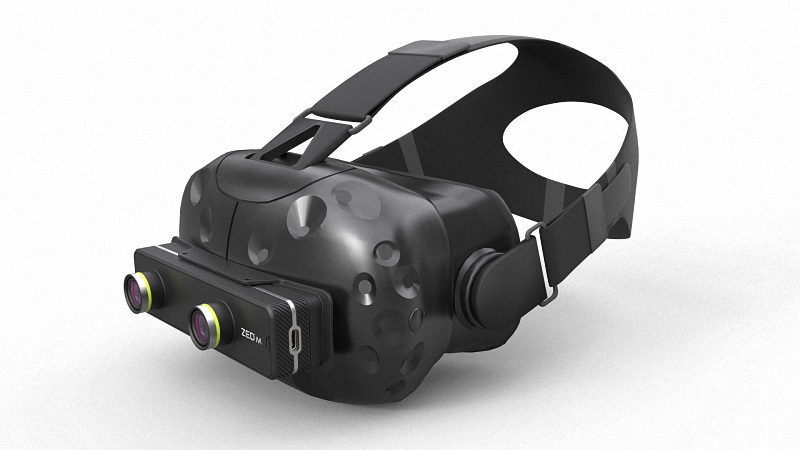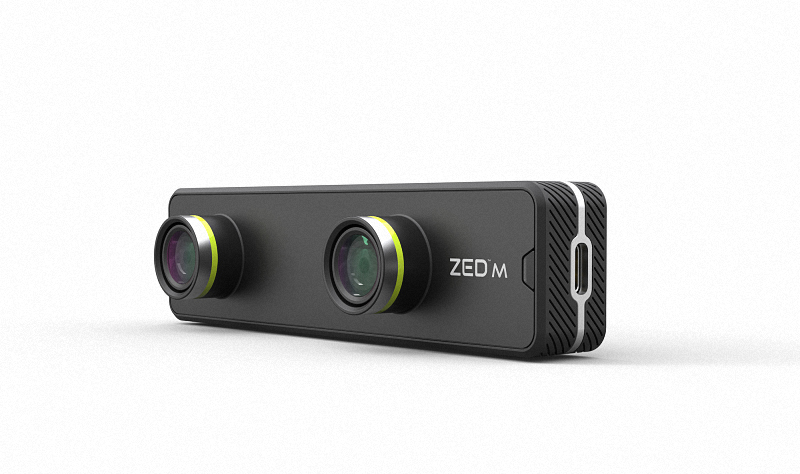
ZED mini turns Rift and Vive into high-quality AR glasses
While AR glasses such as the Meta 2 or HoloLens are only available as developer kits, and are the first augmented-reality headsets you can actually try, they are also pretty inaccessible at prices starting at $1500.
Late last year, StereoLabs announced a potential solution in the form of the Linq, a mixed reality headset that will hopefully retail for less than $1,000. It offers a 110 degrees field of view and the ability to map a 3D space in real time, mostly thanks to the company’s ZED 3D camera that’s embedded in the headset itself. Today, however, the company is announcing an even cheaper device that’ll transform any VR headset into an AR one: the ZED Mini.

As the name suggests, the ZED Mini is essentially a tiny version of the ZED 3D camera. The idea with the ZED Mini is that it’s small enough that you can just slap it on top of an existing VR headset, the HTC Vive or the Oculus Rift, and you’ll get an augmented-reality headset without having to spend up thousands more dollars.
The ZED Mini works in the same way as the ZED. It has two cameras that are designed to work like human eyesight. Both versions have two 720p RGB sensors with the aforementioned 110-degree field-of-view. The ZED Mini uses StereoLabs’ unique depth-sensing tech, which doesn’t require external cameras or sensors. “It takes the point of view of the left and right cameras and understands the distances of objects,” says Cecile Schmollgruber, Stereolabs’ co-founder and CEO. The ZED Mini connects via USB-C to the headset and attaches via a compatible mount.
ZED mini: A Field of View larger than Microsoft’s HoloLens
The ZED mini has a Field of View larger than Microsoft’s HoloLens, but cannot take advantage of the entire field of view of the Oculus Rift. The company claims the camera can detect depth out to an impressive 15 meters (49 feet). The camera also builds a geometric map of the environment in real time and fuses the data with an onboard IMU enabling positional tracking of the headset within the AR environment.
In conjunction with the release of the ZED Mini, StereoLabs is also updating the ZED SDK so that developers can start making games and apps for it using Unity and Unreal game engines (right now, the ZED Mini will come bundled with the demo apps mentioned here).
Because it can be attached to both Oculus Rift and the HTC Vive, the ZED Mini is also compatible with the Vive and Touch controllers out of the box, so it shouldn’t be too difficult to start making games for it
The ZED Mini, however, is expected to ship in November for $450. The ZED Mini might not have the immersion of a Magic Leap or the clarity of a HoloLens, but right now, it’s by far the cheapest and most accessible way to get into augmented reality.
